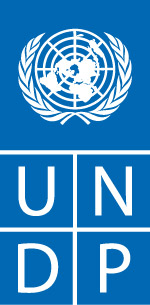The United Nations Development Programme (UNDP), a development agency on the ground in 177 countries and territories, seeks to help empower lives and build resilient nations. Achieving sustainable human development will be little more than an aspirational notion without the full involvement of young men and women who currently constitute the majority of the world’s present population and are also the world’s future.
UNDP is increasingly supporting youth policy and programming at the country, regional and global levels. Interventions range from full-fledged “youth programmes” to discrete “youth components” in the context of mainstream development programmes, covering a variety of different areas.
UNDP’s youth portfolio has been for example:
- supporting governments and national counterparts in developing and implementing National Youth Policies (e.g. Jordan, Liberia);
- promoting skill building and employment generation for youth, both short- and long- term (e.g., East Timor, Ethiopia, Nicaragua, Sierra Leone);
- supporting youth participation in politics and decision-making (Armenia, Brazil, Egypt, Iraq)
- supporting youth involvement in oversight and accountability mechanisms (Bangladesh, Occupied Palestinian Territory, Serbia)
- supporting community action for integration of marginalized, minority and at-risk youth (e.g. Cambodia, Lebanon, Mexico, Moldova);
- promoting peace-building and cross-community reconciliation among young people (e.g. Cyprus, Sri Lanka);
- promoting civic engagement and youth volunteerism, in particular through supporting the creation of National Youth Volunteer Services (e.g. , Bosnia-Herzegovina, Liberia, Uzbekistan)
Since 1998, 19 UNDP National Human Development Reports have been dedicated specifically to youth, and many more have focused on youth as a cross-cutting theme. Various initiatives on youth have also been carried out at the regional level – in the Arab Region, for example, UNDP worked to advance the role of youth in the attainment of the MDGs.
Over the period 2012-2014, the Democratic Governance Thematic Trust Fund is supporting 38 projects globally in support of youth participation and empowerment. Several of the projects focus on solving the exclusion that is a root cause of trends such as youth violence and crime. They recognize that youth brought fully into the mainstream are tremendous agents for change. With the right opportunities to participate, politically and economically, young people become an asset critical to a future of peace and development.
UNDP’s Democratic Governance Thematic Trust Fund (DGTTF)
Supporting the Youth
At UNDP, the Democratic Governance Thematic Trust Fund (DGTTF) issued a call for proposals from Country Offices in 2011 in support of innovative and catalytic projects on youth empowerment and democratic governance. The proposals submitted confirm governance challenges that affect the youth; the size and potential of that vibrant segment of the population as well as the indispensable role that politics and democratic governance can play in achieving sustainable human development.
In a number of countries, youth exclusion is strongly evident, often crossing with other forms of marginalization linked to gender, location, culture and/or community. This undercuts both development and social cohesion, yet it remains poorly recognized. Social norms continue to sideline youth in many places, treating political and economic participation as the prerogative of older people. While a few national policy frameworks have started to pay deliberate attention to youth concerns, much more can be done towards implementation. In all countries, youth need to be full participants in both shaping and implementing the choices that affect them.
37 DGTTF proposals were accepted from across the globe and across diverse national contexts including: 9 in Africa, 8 in the Arab States, 5 in Asia and the Pacific, 8 in Central and Eastern Europe/Commonwealth of Independent States, and 7 in Latin America.
Empowered Youth for Sustainable Human Development
In countries that have not yet begun to acknowledge and define the issues of youth, collecting evidence and conducting assessments are obvious first steps. Those further along face challenges of developing political and administrative capacities to effectively engage with and respond to young people. Across the projects, some common activities include strengthening youth advocacy groups, providing quality research to inform public policy-making, training youth as effective leaders, extending access to justice, and opening space for youth to interact with public authorities, bringing young people into public service delivery, and fostering the creation of national youth councils and plans. Measures to work with youth in several countries place an emphasis on social media and information technology. Innovative strategies range from social partnerships for service delivery to provincial youth parliaments to a digital game on youth and local governance.
What unites all these projects is the goal to find ways to counter a common notion that young people mainly pose problems that need to be controlled. The projects focus instead on solving the exclusion that is a root cause of trends such as youth violence and crime. They recognize that youth brought fully into the mainstream are tremendous agents for change. With the right opportunities to participate, politically and economically, young people become an asset critical to a future of peace and development.

